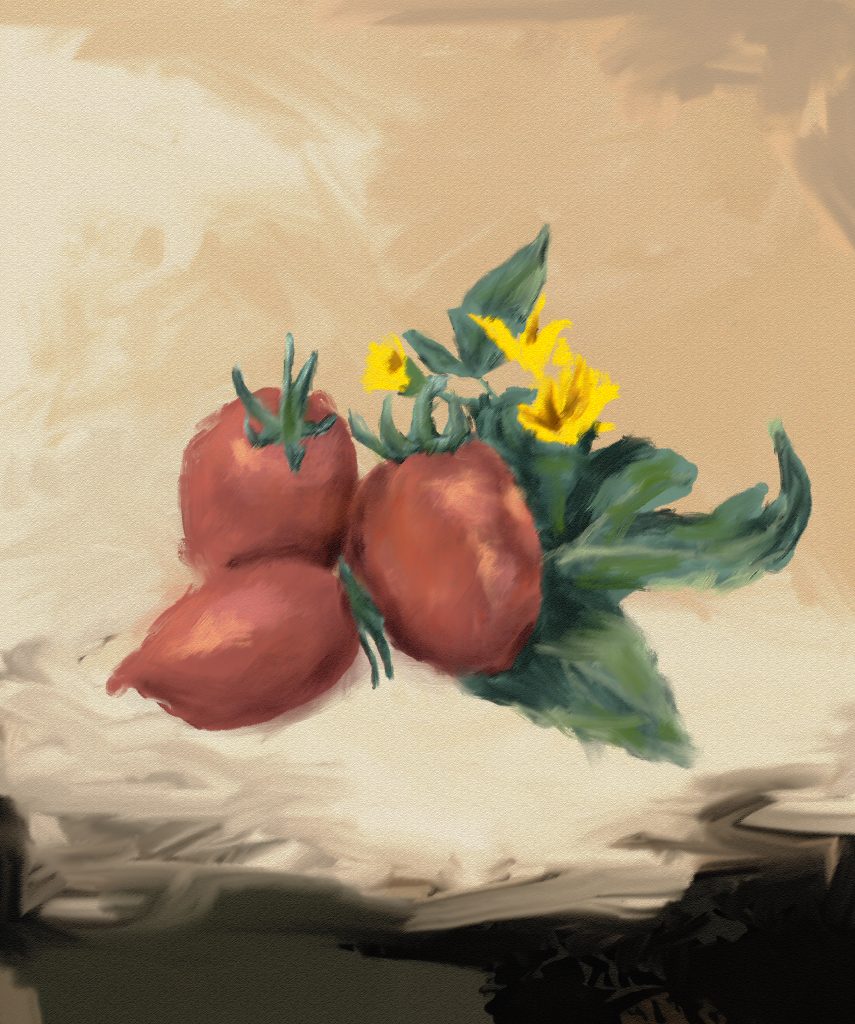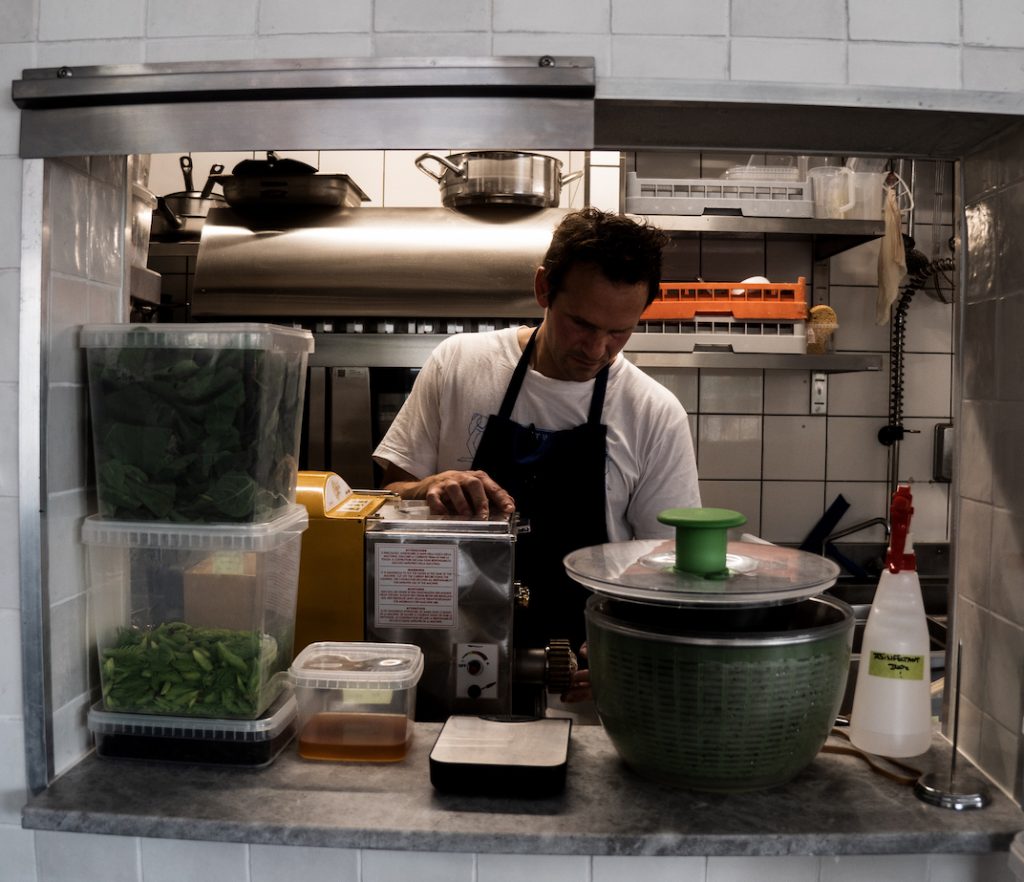FOOD SUSTAINABILITY
Or: How to keep our heads above the surface. Keep kicking. Keep kicking.
Lost at sea
It’s a fact, all the major climate changes we’ve witnessed in the last years, in whatever corner of the world you may be in right now, has attracted our attention on a bigger level. It’s been a recurrent subject of daily conversations with friends here, and we’re more than ever aware that we need to do more, to put in more effort than what we’re doing now. While waiting for governments to take radical decisions on a mid to long term outlook, I believe first changes can be made at human scale, with short term results.
Having opened a restaurant in the last year—with the aim of sharing our message and vision of what our food consumption should ideally be like—has shown us how hard it can be for people to take the right decisions on how to eat in this ocean of information.
The sheer amount of water required, deforestation, land use, greenhouse gas emissions: these are some of the major impacts of agriculture and food production on the environment. How to reduce our impact on our daily food consumption? Below isn’t a firm answer by any means, but just a few ideas on what you could try to change, to explore new paths.
Local markets rather than supermarkets
I know how hard it can feel to find the time during your weekly routine to go to your local farmer markets instead of your ‘local’ supermarket, but it’s one of the first things you can switch up. If it seems impossible during the week, try to squeeze some time in during your weekend. At least for a few products if not all of them; I don’t understand how we can still buy salads wrapped in plastic if we want change to happen.
Local markets are amazing for meeting the producers behind what’s going to be on your plate. They can be a great place for exchanging information, and the perfect opportunity to ask those on a ground level about their farming and growing methods. You’ll easily know if they’re making things the right way or not by how they answer. Wandering at the market also provides a good reflection of what’s in season, at least locally. It’ll give you an idea of what you should buy if you want to tap into food production at a local level rather than at an industrial or international one—like which tomatoes you could find during spring and winter seasons at the supermarket.
Organic food? At what cost? That depends on how far it has travelled
If you can’t access local markets, I suggest going to organic shops rather than supermarkets. But an important question here can be brought to the table regarding organic food: at what cost should we go organic versus local?
At the restaurant, we prefer to use local producers where sustainable, even though they may not have organic certifications. A lot of small producers will tell you that they’ve been farming for years knowing what they put in the soil, and that actual certification is too expensive for them. We believe it has become important to reduce our emissions from energy via transportation. You should always look at where your organic food is coming from. When you see organic cucumbers from Egypt or carrots from Italy, maybe opt for local pesticide free alternatives instead.
Find out more about farming/fishing methods
Worldwide food production is responsible for 26% of global greenhouse gas emissions. It’s worth noting that 30% of food emissions come directly from livestock and fisheries. If we dig a bit under the ice and take a look at the different aspects of the supply chain in food production, land use changes and on-farm emissions are the two biggest culprits of food’s carbon footprint.
This means the impact on environment here mainly comes from big industry corporations producing food on a massive scale—using deforestation to crop/build, changing the soil’s carbon, increasing methane emissions from big cattle farms, the use of fertilisers, and large-scale farm machinery. Knowing this, you could easily reduce your impact when buying animal protein, by focusing on small/local farms that likely didn’t deforest half the village to make it happen, and have a limited production that helps to reduce global emissions. It’s all about taking an interest in who you’re buying from, and how they made it to the end of the supply chain, us
Don’t give up red meat if you love it
Don’t give up red meat if you love it. Instead, opt for grass-fed beef, with cattle who have room to graze, and improved land use, nutrients, manure management and soil health. Reports have found that well-managed grazing systems, like grass-feeding, can regulate soil carbon levels and reduce methane gas emission.
If I remember rightly, around 5-10 years ago, people were telling us to stop eating meat as it was bad for the planet, and eat more fish instead. Now we’re being told fish resources are at risk and we have to stop eating it. You only need refer to Seaspiracy on Netflix to see why. As we said at the beginning, we’re lost at sea. I don’t believe we should stop eating fish, and I don’t believe that fish stock will collapse within 50 years, if we focus on sustainable fishing.
What I do believe is that, as is the case for meat, we should reduce our consumption to sustainable and local catches only, wherever possible. Try to get fish only from fishmongers instead of the frozen food section at the supermarket. You will be able to get the relevant information on where/how it has been caught. Rather than focusing on the species, focus on the methods, and buy fish caught by line, gill nets or traps, but please avoid purse seine, dredging and trawling, which carry with them high risks of bycatch and seabed damages.
Eat less of it at a higher quality, for the planet’s sake!
Be aware that if you decide to buy meat and fish with all this in mind, it will cost much more money than before. But, it’s ok, because our body doesn’t need animal protein each and every day.
Watch out when eating out
Clearly, this is a lot of information to take in at once. I’m very familiar with it as I work in the food industry, and all of the above naturally makes sense to me. Again, I understand that days at the office can be long, and sourcing sustainable groceries isn’t perhaps the priority at the end of your day, but remember that food is a priority. If you don’t have time for it and decide to eat out, choose restaurants that prioritise these values.
I don’t think there’s a single, perfect answer on how we should eat to be more sustainable. Everyone should be able to create their own path and make the right choices, without feeling bad and without making too many sacrifices. I believe the changes can be made step by step, day by day, rather than drastically.
Words by Adrien Witte, Head chef and owner of Cheri Bibi restaurant in Biarritz, France.





